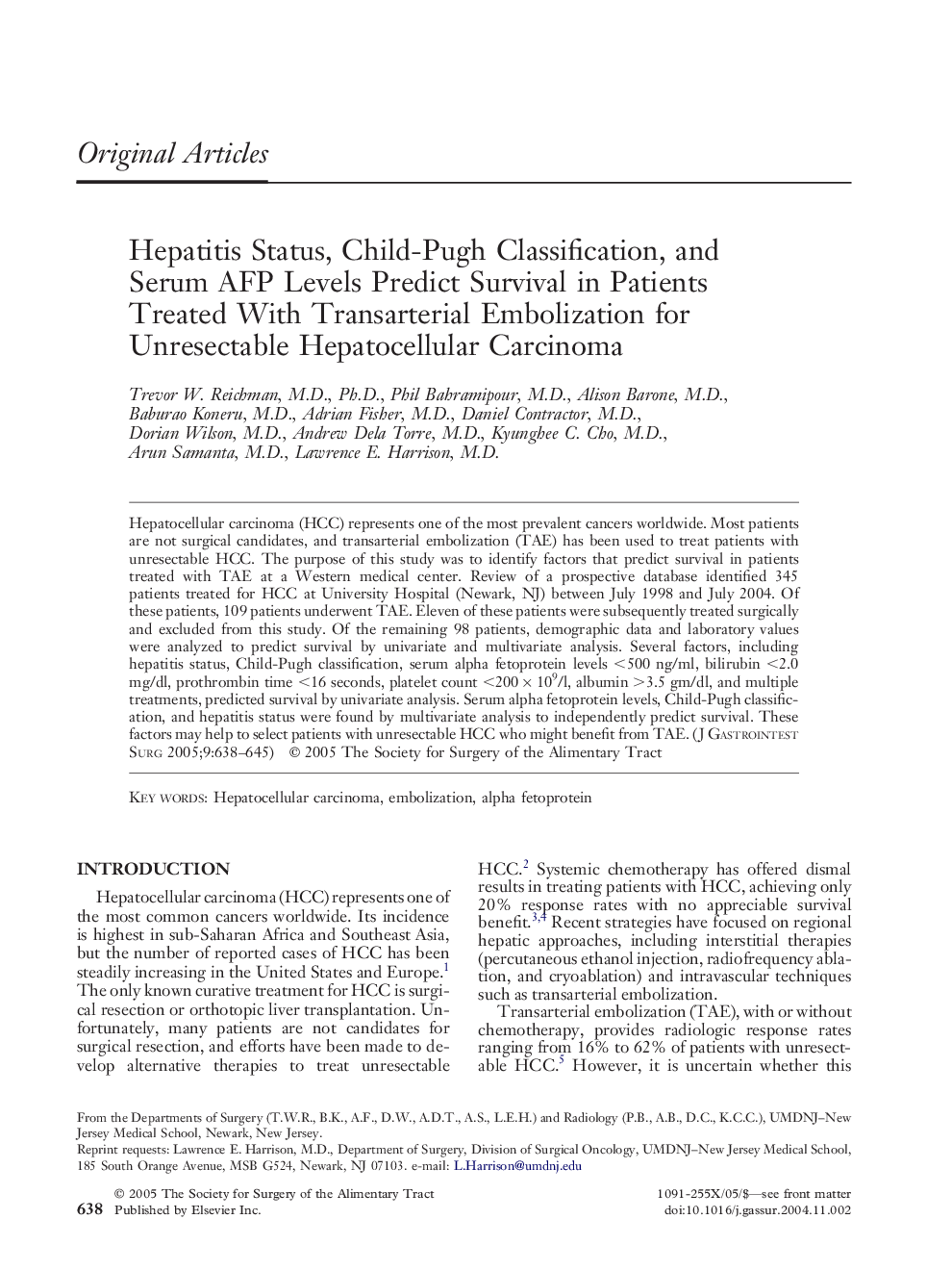| Article ID | Journal | Published Year | Pages | File Type |
|---|---|---|---|---|
| 9401310 | Journal of Gastrointestinal Surgery | 2005 | 8 Pages |
Abstract
Hepatocellular carcinoma (HCC) represents one of the most prevalent cancers worldwide. Most patients are not surgical candidates, and transarterial embolization (TAE) has been used to treat patients with unresectable HCC. The purpose of this study was to identify factors that predict survival in patients treated with TAE at a Western medical center. Review of a prospective database identified 345 patients treated for HCC at University Hospital (Newark, NJ) between July 1998 and July 2004. Of these patients, 109 patients underwent TAE. Eleven of these patients were subsequently treated surgically and excluded from this study. Of the remaining 98 patients, demographic data and laboratory values were analyzed to predict survival by univariate and multivariate analysis. Several factors, including hepatitis status, Child-Pugh classification, serum alpha fetoprotein levels <500 ng/ml, bilirubin <2.0 mg/dl, prothrombin time <16 seconds, platelet count <200 Ã 109/l, albumin >3.5 gm/dl, and multiple treatments, predicted survival by univariate analysis. Serum alpha fetoprotein levels, Child-Pugh classification, and hepatitis status were found by multivariate analysis to independently predict survival. These factors may help to select patients with unresectable HCC who might benefit from TAE.
Related Topics
Health Sciences
Medicine and Dentistry
Surgery
Authors
Trevor W. M.D., Ph.D., Phil M.D., Alison M.D., Baburao M.D., Adrian M.D., Daniel M.D., Dorian M.D., Andrew M.D., Kyunghee C. M.D., Arun M.D., Lawrence E. M.D.,
